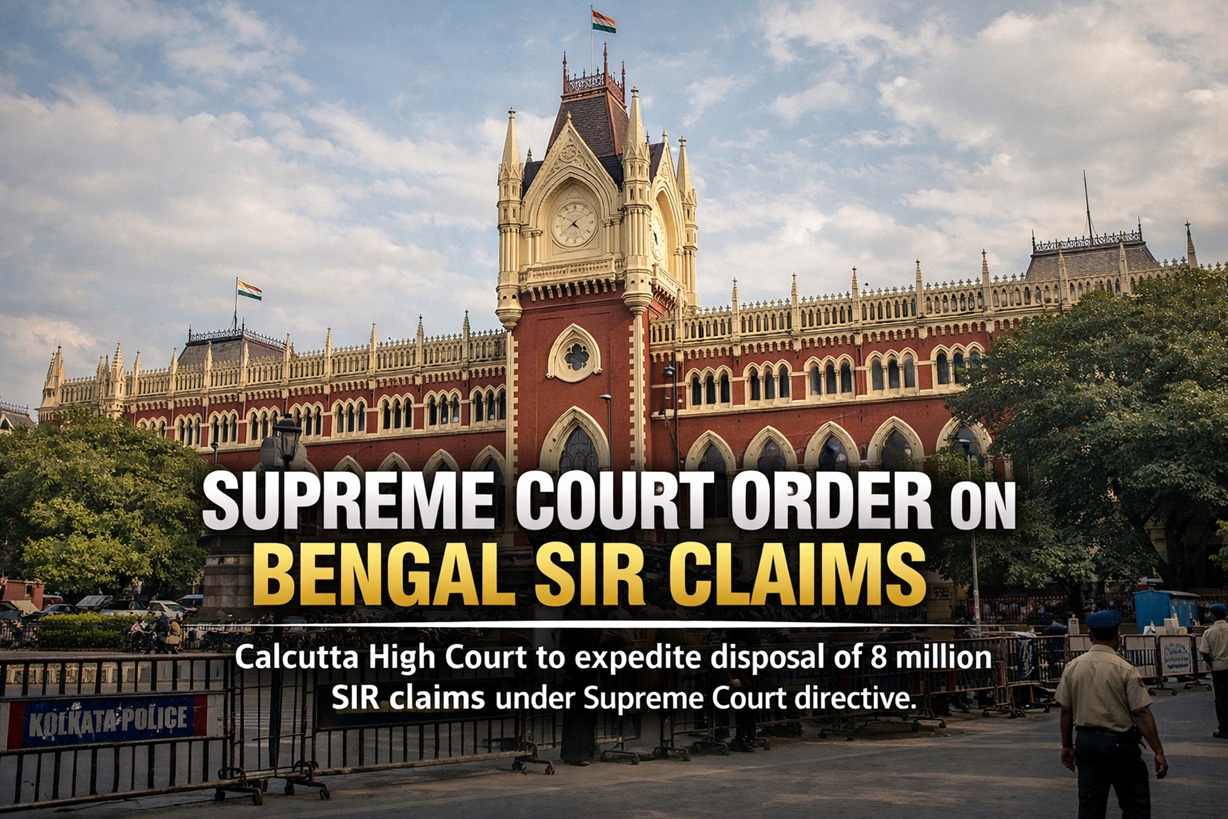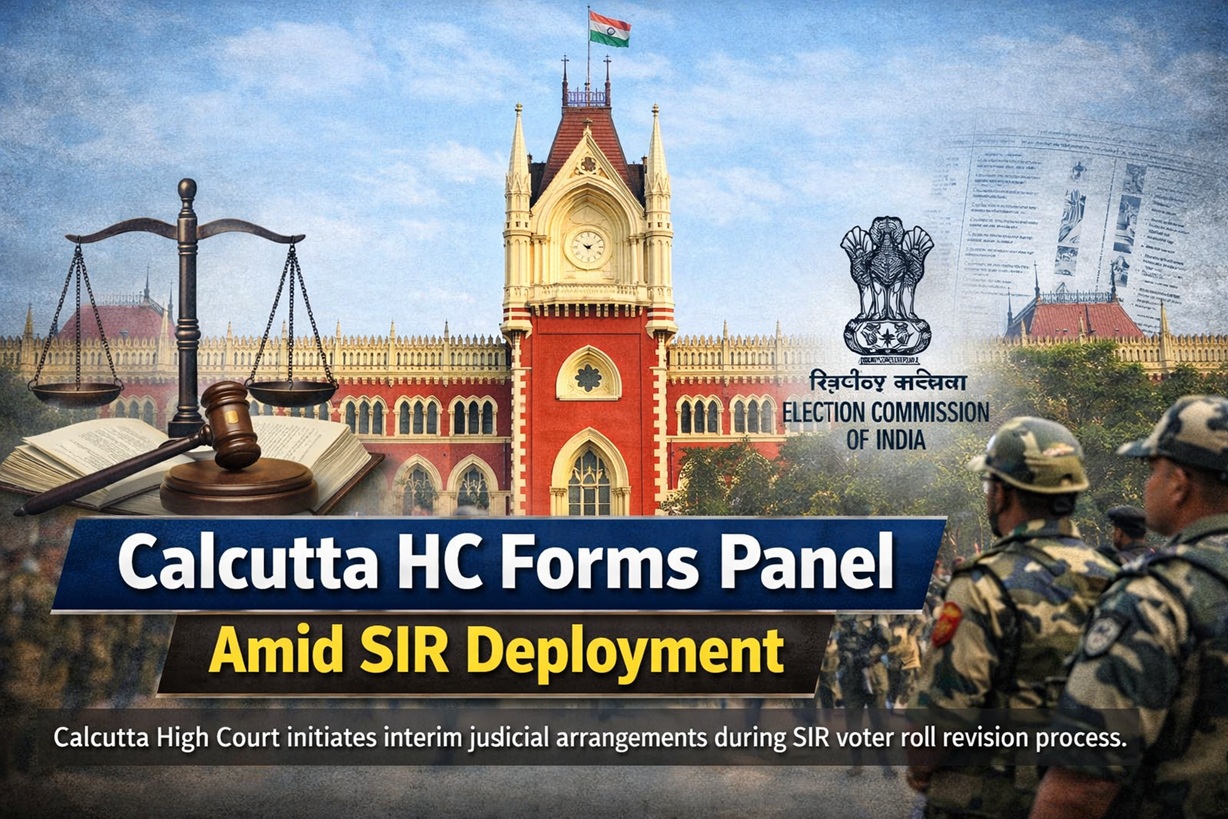The Supreme Court of India held a crucial hearing on the constitutional challenge to the Waqf Amendment Act, drawing national attention to the ongoing debate over religious property rights, secularism, and legal oversight. The bench, comprising Chief Justice Sanjiv Khanna, Justice PV Sanjay Kumar, and Justice KV Viswanathan, delivered a significant interim order providing relief to the Central Government while putting in place safeguards until further proceedings.
Key Developments from the Hearing
The Supreme Court refused to stay the Waqf Amendment Act, thereby allowing the law to remain in effect for now.
The Court granted interim relief to the Central Government, declining to intervene in the legislative process without a thorough examination.
A temporary stay was imposed on new appointments to the Waqf Board and its Councils under Sections 9 and 14 of the amended Act.
The Court directed the Union Government to file its response within seven days, with petitioners required to reply within the following five days.
The next date of hearing is scheduled for May 5, 2025.
Additionally, the Court ordered that the status quo be maintained on public properties related to Waqf until the government submits its response. This includes protection of properties already registered and notified as Waqf under official gazette notifications.
Arguments Presented in Court
Solicitor General’s Position
Representing the Central Government, Solicitor General Tushar Mehta firmly opposed any interim stay on the law. His key arguments included:
Parliamentary Sovereignty: A law passed by the legislature should not be stayed based on “tentative reading” or unsubstantiated fears.
Due Process: The amendments were made following consultations and with the objective of streamlining the regulation of Waqf properties.
Equal Protection of Property Rights: The government argued that many properties claimed as Waqf were neither documented nor registered, leading to arbitrary claims, affecting both Hindu and Muslim private owners.
Regulatory Oversight: The amendment seeks to bring transparency, requiring Waqf Boards to formally register properties and provide documentary evidence before staking claims.
Petitioners’ Concerns
The petitions before the Court have raised serious questions regarding the Waqf Board’s powers, arguing that:
The law allows unilateral declaration of properties as Waqf, leading to alleged encroachments.
Private and government lands are sometimes claimed as Waqf without due legal process.
There is a disproportionate application of state control, with Hindu temples often placed under government oversight, while Waqf Boards operate autonomously.
The petitioners sought a complete stay on the Act, alleging it violated Articles 14 and 25 of the Constitution, which guarantee equality and freedom of religion.
The Court’s Observations
While the Court refrained from issuing a stay, it took note of the seriousness of the concerns and made several observations:
The Chief Justice emphasized that the matter involved sensitive constitutional questions and required careful legal examination.
The Court acknowledged that the Waqf Amendment Act had “some positive aspects”, and that no irreversible changes should be made in the interim.
It also clarified that the existing rights of parties must be preserved, and that properties already notified as Waqf should not be de-notified without due process.
Background: What is the Waqf Amendment Act?
The Waqf Act, 1995, governs the administration of religious endowments (Waqf) in India, primarily for Islamic charitable purposes. The 2023 amendments introduced new provisions related to:
Registration and notification of Waqf properties.
Appointment processes to Waqf Boards and Councils.
Greater central oversight to ensure transparency and prevent misuse.
Critics argue that these amendments may open doors to overreach, particularly where ownership documentation is vague or disputed. The government contends that the amendments are necessary to prevent land grabs and provide a transparent legal framework.
The Political and Social Context
The case has triggered a broader public debate on religious parity in property management. Critics of the Waqf system argue that while Muslim religious properties are self-governed, Hindu temples are frequently brought under state control, especially in states like Tamil Nadu, Karnataka, and Kerala. Allegations of unequal treatment under secular governance have thus fueled political narratives on both sides.
Notably, some political parties and commentators have accused the judiciary of being overly cautious in matters involving religious minorities, while others have warned against communalizing legal proceedings.
Legal Implications Going Forward
The Supreme Court’s decision not to grant an immediate stay underscores the Court’s reluctance to interfere with legislation prematurely. However, the interim freeze on appointments indicates that the judiciary is aware of the far-reaching implications of the Act.
The case is expected to set a precedent on how religious properties are managed and regulated in India. It also raises fundamental questions about equality before law, religious autonomy, and the balance between legislative intent and judicial review.
What Happens Next?
The Central Government is now required to file a detailed affidavit within seven days, addressing the constitutional challenges raised. Petitioners will then respond within five days, and the matter will be taken up again on May 5, 2025.
Until then:
No new appointments can be made to Waqf Boards or Councils.
Existing Waqf property notifications remain valid.
Disputed or undocumented land claims may face scrutiny but will not be forcibly acted upon without legal process.
Whats ahead
The Waqf Amendment Act case has brought into focus the complexities of balancing religious rights, property laws, and secular governance in India. While the Supreme Court has refrained from halting the law outright, its cautious approach suggests that the final verdict will hinge on detailed constitutional analysis.
All eyes will now be on the next hearing in May, where the Court’s decision may reshape how religious endowments are recognized and regulated in a diverse, pluralistic society.







